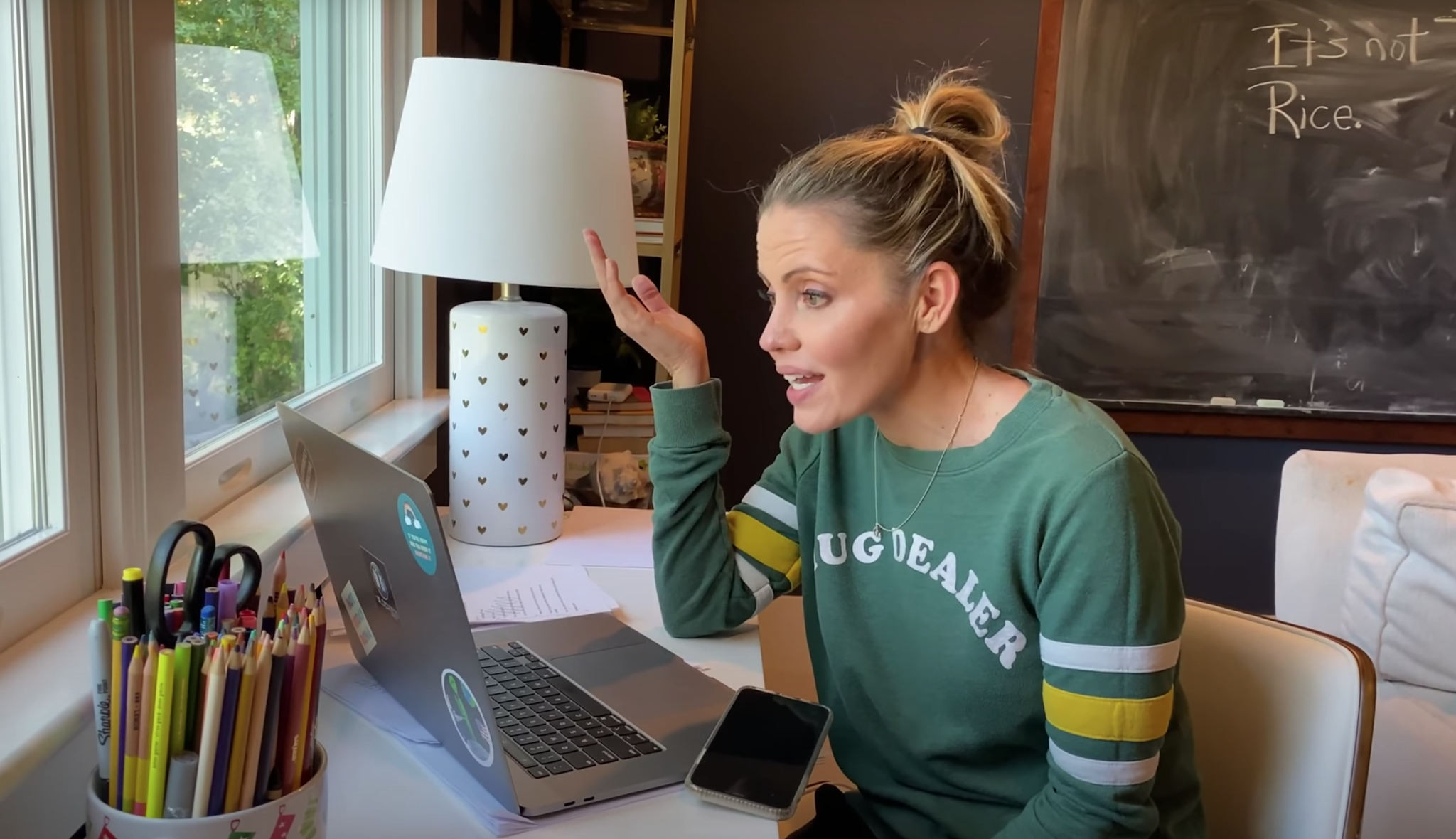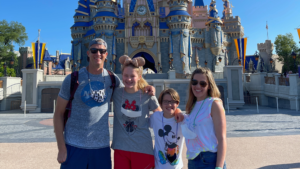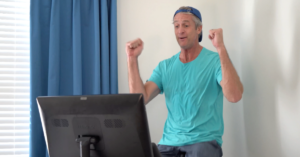I like to think about my anxiety like a bad boyfriend in need of boundaries: On the best days, I can ignore it. On the worst days, it’s persistent, abusive, and I find myself tangled in the drama.
I haven’t talked with a person since the start of the pandemic who isn’t dealing with some level of anxiousness. I’ve talked openly about my experience living with depression and anxiety, but still it doesn’t stop some people from saying, “What do you have to be depressed about?” Some others even ask (in the snarky internet way) “Have you ever been diagnosed with these things or are you using internet buzzwords?”
The answer to the last one is YES. I’ve been diagnosed by several psychiatrists, psychologists, talk therapists over the span of my adult life with depression, Generalized Anxiety Disorder, and get this… OCD! Doesn’t that sound like a winning combination?
As for the first question, (“What do you have to be depressed about?”) just stop. That’s not how it works. Layering on shame to the complicated workings of mental health isn’t going to help anyone. So stop.
What Is Anxiety Anyway?
For people like my husband, who has never had a long term mental health struggle, anxiety is that feeling of doubt or worry before a job interview or as a stressful time of year approaches. Anxiety is a part of everyday life and everyone feels it from time to time.
My personal brand of anxiety doesn’t need a particularly stressful event to trigger. It could just be a sunny Tuesday and BAM! On these days, I look my husband in the eyes and say, “Be patient with me today, my anxiety has come for a visit.”
Anxiety can manifest in physical and emotional ways:
- Poor sleep
- Fatigue
- Mood swings, irritability or feeling “jumpy”
- Digestive upset
- Perspiration
- Sore or tight muscles
- Shaking or trembling
People with more severe forms of anxiety, such as those with Generalized Anxiety Disorder (GAD), find themselves feeling anxious or even panicked on a consistent, excessive basis. This prolonged sense of worry can make everyday life very difficult, impacting relationships and jobs on top of physical and mental wellness.
How to Recognize It
The first step to managing your anxiety is to name it. It helped when I talked with a therapist who could put a label on what I was feeling. I was on medications for many years, but have weaned off under doctor’s supervision. That’s another story entirely.
Another helpful tool for me was keeping a journal. Taking the time to write down how you felt and any symptoms you experienced may help you determine a pattern and figure out your own triggers.
Naming the Triggers
- Where were you?
- What time was it?
- What were you doing?
- Was anyone with you?
- What physical symptoms did you experience?
- How did you sleep the night before?
- Did you consume caffeine or alcohol?
- How long did the episode last?
- What ultimately helped?
- When was the last time this happened?
How I Manage To Stay Productive When Anxiety Visits
Once I learned what set me off, I had to learn to live my life! I have a mortgage to pay and a family to raise, hiding under the covers isn’t always an option. Here are some things that worked for me.
- Speak to someone.
I’ve said this before, and I’ll say it a thousand more times .. GET HELP! Connecting with a physician or therapist can help you plan a course of treatment. Support groups are also wonderful. And lastly, talk with the important people in your life about your anxiety and how you want to communicate if you’re struggling. Penn knows all my tells and it makes both of our lives easier. I do zoom therapy about twice a month right now. It’s my most important act of self-care and committing that time has helped me stay focused. - Commit to an exercise routine.
When I exercise regularly, I noticed a marked difference in my anxiety. Just 30 minutes a day is the perfect place to start. This is especially important on days when you don’t feel like lacing up your sneakers. I make a promise to myself: I go for a walk or run…and I give myself 12 minutes. If after 12 minutes, I still feel miserable and hate it I give myself permission to go home. A heads up, I’ve never once stopped after 12 minutes. By that point, my blood is pumping, I am feeling better, and I’m ready to get to work. - Watch the caffeine and booze consumption.
I know when my diet is packed with nutritious food, loads of fruits and veggies, I feel better in general. But let’s be clear, my two favorite things are my morning coffee and my nightly glass of wine. I love the ritual, the smell, the feeling.. I love it all. Unfortunately, these two things don’t love me back. I limit myself to one cup of coffee in the morning and will cut back on that if I notice I’m having consecutive bad days. And, sadly, I’ve had to severely cut back on my nightly wine habit. I will treat myself to a glass on Friday or Saturday, but without fail, wine disrupts my sleep and impacts my mood. It’s one of life’s cruel jokes. - Try meditating.
Deep breathing exercises are a popular recommendation for anxiety. They can help calm you down and allow you to see past what’s causing your anxiety. Starting a meditation practice is one way to work these exercises into your daily schedule. - Get plenty of rest.
Sleep and I are frenemies. Just when I think I have her figured out, she turns on me. But fatigue only worsens my anxiety. Create an environment ideal for getting a great night’s sleep and aim for seven to nine hours per night. I don’t have FOMO (Fear of Missing Out), I have FOMS (Fear of Missing Sleep). - Set a goal, but be kind to yourself.
On days when my weird friend anxiety pays a visit, I make a list of the most important things to get accomplished — then I do my best. On the days when I feel like I’ve failed my list, I remind myself that I am surviving a pandemic, I’m keeping tiny humans alive, and that’s enough. - Some days require a do over.
There have been days that seemed doomed from the start. I’m shaking, twisting with nerves, and I snap at the slightest issue. On those days, nothing will get done unless I start over. Even if it’s 5pm, I’ll make a cup of coffee (decaf) and symbolically start my day again. I’ll shower, exercise, whatever it takes to create blank slate.
My anxiety and I have been in a committed relationship for a long time. And while I know I can’t send it on a permanent vacation, I can manage it and so can you. Share your tips with me in the comments.
[adthrive-in-post-video-player video-id=”fZfxFpYA” upload-date=”2022-04-20T19:35:44.000Z” name=”How I Overthink Things” description=”” player-type=”default” override-embed=”default”]




